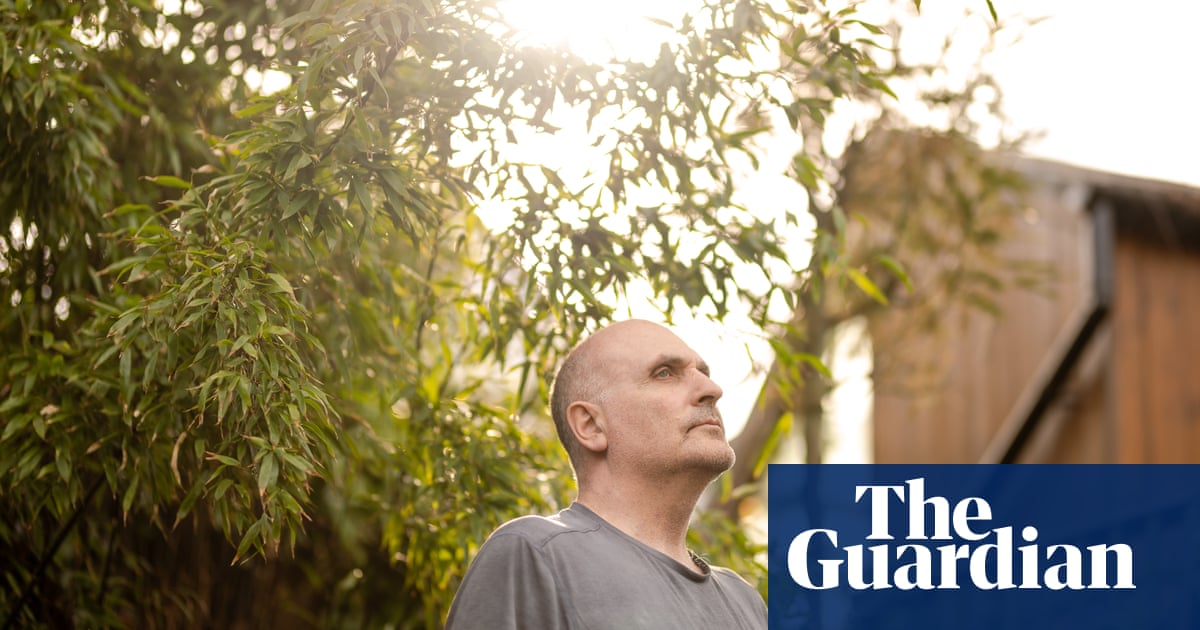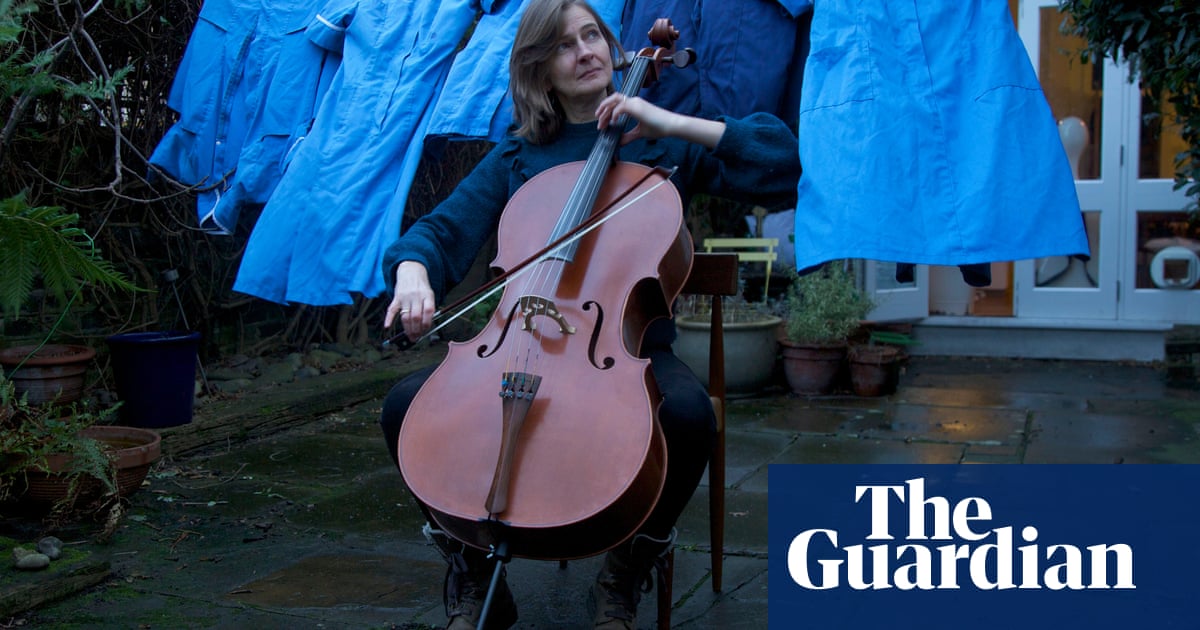
Thank you to John Crace for this article (‘Is this how I die?’ John Crace on his terrifying heart attack, 21 March). It has allowed me to start the process of accepting that although my two heart attacks on Christmas Day 2022 were mild and sorted by some stents, they were still serious. Surrounded by men on my ward who were recovering from, or waiting for, various heart bypass procedures, I felt almost like a fraud – after all, a stent is at the lower end of the scale, or so I convinced myself.
I have laughed off the concern of loved ones and friends, and dined out on a good story that involved me thinking I had a bad chest infection on the day, accounting for my chest pains and breathlessness and symptoms that in general did not conform to my view of what a heart attack should be like.
Even my definition of pain was at odds with what I thought heart attack pain was. It seems, however, that others had contemplated what life could have been like without me after hearing my news. This opens up a whole new can of worms about men’s health and how seriously we take it ourselves, brushing illness off, avoiding the doctor because it’s time-consuming (for them) and generally not wanting to get involved with our health.
John rightly points out the magnificent diversity of the health service and I couldn’t agree more with his observation that “when the chips were down, it was there for me”. It took a friend to ask me how much more serious a heart attack had to be before I accepted that it had been a life-changing event – after all, the Royal Liverpool university hospital did. Thanks to John’s article, I am encouraged to continue on the journey of acceptance.
Nick McLeod
Ellesmere, Shropshire
In October 2022, between lockdowns, we moved to rural France. We went to Paris for Christmas, and on 22 December we were rushing to catch the Métro when I experienced exactly what John Crace described in his article: a slight out-of-body experience and a tightness in the chest. We continued underground but after two stations I knew something was wrong. A medical student got off the train with us, reassured my family and gently held my hand as the pompiers were called – in France, the fire service always comes first. I was taken back upstairs into an ambulance, and thankfully a doctor was seeing to another heart attack across the road – what are the odds? He insisted I go straight to hospital whereupon an incredible team inserted a stent into the small diagonal artery which was blocked. I was 45. I don’t smoke, drink a little, am average size and weight, and eat lots of vegetables. Again, what are the odds?
Like John, I am profoundly grateful for those people who saved my life that day. And now I silently offer daily thanks to the heart-shaped aspirin I must take for the rest of my life along with a statin. It’s not a cliche to say that experiences like this put everything into perspective. I wake up every day full of joy to be alive and well. I rarely think about what happened, but this article so movingly described my own experience that I wept as I remembered asking that very same question: “Is this how I die?”
Rebecca de Volkovitch
Parsac, France
I am three months out from quadruple bypass surgery. I am 64, in reasonably decent shape, hike, do tai chi and walk. The aching pain in my left shoulder began last summer, went away, but returned in late fall along with a pain in my jaw. I passed it off as overexertion. A visit to the doctor led her to sending me off to hospital. After eight days of prepping and waiting in hospital, I spent six hours on the table. Next was four days of hospital stay and then, blessedly, home.
I have my wife, my doctor, and the staff of two different hospitals to thank for getting me from tests, new medications, and all the way through surgery. My wife cooked for me, helped me dress, and kept me company the first month home. I’ve had visiting nurses and now spend three hours per week with a great crew at cardio rehab, where I am slowly rebuilding my strength and stamina. Family, friends and colleagues have been wonderfully supportive and my eldest grandson takes me on walks, chats with me about great ideas and keeps an eye on me.
Now I imagine how I want to live my remaining years, how to better spend each day, how to make sure that everyone who loves me knows that I love them. I am back to doing taiji with my online class, I walk two miles or more each day, and am preparing to return to work soon. It is a slow process of regaining the health I once took for granted, but, as my mother-in-law used to say, it beats the alternative. Heal well, John, and embrace the gift of a healthier future.
Joseph E Charnley
South Deerfield, Massachusetts
I read John Crace’s account of his recent hospital stay following his heart attack. It is moving and reassuring to hear yet again about the excellence and loving care taken over his treatment by the staff, and makes the contrast all the more stark with the chaos and inadequacies of the surrounding infrastructure.
We must radically overhaul our healthcare system, which is no longer fit for purpose. We have to separate it from the divisive and bitter world of politics and set up a cross-party, cross-generational commission of the best experts we can find to remodel it. We may need to face up to making higher financial contributions via taxation, if we can afford to, but the principle of treatment based on clinical need without charge should be preserved. Without such intervention, we will soon be looking at the ruins of the NHS and be forced into the world of private medicine, where treatment is based on the levels of the patient’s insurance policy. We owe this to ourselves, our incredible healthcare workers and future generations.
Fran Mortimer
Brighton
May I join everyone else in wishing John Crace a full and speedy recovery. His is the first column I turn to each day, and the Guardian is not the same without him. As someone currently receiving chemotherapy, can I endorse John’s final comments about the NHS. I must have been seen by 100 people of different origin, colour, ethnicity and religious belief. Without exception, they have treated me and each other with respect and good humour and are an uplifting pointer to the Britain of the future, rather than the negative picture the angry men like Lee Anderson portray.
Jonathan Harris
Poundon, Buckinghamshire
I have been lucky to have been treated at St George’s for cardiac emergencies. I am simply lost for words to express my gratitude for the level of care I received there, it is simply world-class. I’m not religious, but if I was I would thank God for the NHS.
Sean Fullerton
Shepperton, Surrey












